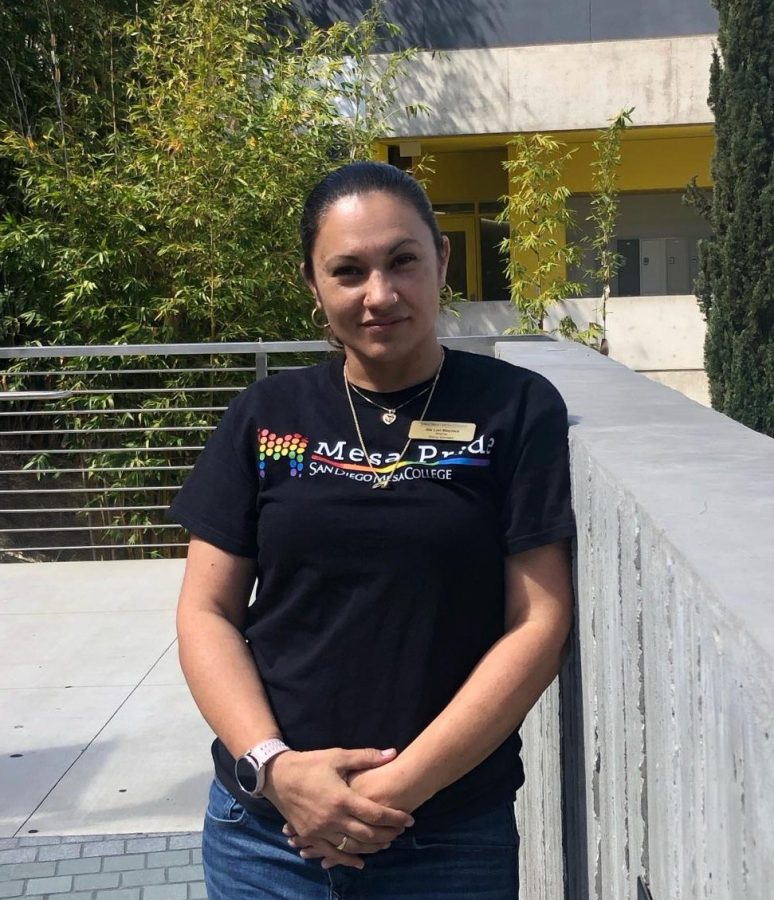Since the month of March is Women’s History Month, Mesa College has had a variety of events that highlighted women. This zoom event that took place on March 21 was titled, “Amplifying the Stories of Working Women Students and Their (In)Visible Domestic Labor.”
The moderator, Katrina Rivett, asked three examples of the working women students of Mesa College questions for an introduction, what a day in their life looks like, and how COVID-19 affected their lives.
“I’ve met and made so many connections with these beautiful women on the panel with me,” Monique Rosas said. “We’re all here on the same journey and we’ve been through a lot of things– a lot of poverty, a lot of trauma but we’re here and you know we were chosen to be here because we have a story to tell and we want to make a difference.”
The panelists, Gia Lori Blaylock, Monique Rosas, and Robyn Bolden, discussed stories that highlighted their resilience and genuinity. Blaylock is the Project Assistant for Mesa Rising Scholars, Rosas is the Basic Needs Project Assistant for Mesa Basic Needs Resource Center, and Bolden is the Project Assistant for Mesa Black Leadership Fellow. They all balance their lives between work, attending school and caring for their children.
“No matter the kind of life that you lived or whatever obstacles that you’ve been put in front of— you’ve got to fight, you gotta get through it, and you got to finish to the end,” said Blaylock.
Blaylock’s inspiration for working towards a sociology major comes from those who are struggling with mental health. Every day, people are fighting their own battles that may stand in the way of them completing that assignment or studying for that test. Letting these challenges fester and build up can hold a person back from their true potential.
“I’m gonna start setting boundaries,” said Bolden. “I am gonna love on myself and validate myself and just be vulnerable when I need to.”
A busy schedule packed with work, school, and time to take care of the kids leaves very little time for the panelists to care for themselves. According to Bolden, in order to care for the ones that you love, it is imperative that you remember to care for yourself. Caring for yourself is caring for others.
According to the panelists, setting up boundaries is a valuable skill to practice in order to conserve energy and well-being. This may include saying no to social events or knowing when to step away from additional responsibilities.
Prioritize what is most important but also lean into that intuition and understanding that what you have accomplished is enough.
Blaylock spoke about how much COVID-19 changed everything in people’s lives. People were losing their jobs, collecting unemployment, isolating at home, and fearing the unknown. Her experience during the pandemic was a positive one because it allowed her to catch up and learn new financial skills. Saving money and understanding when to spend it became a crucial lesson for her.
“A positive thing that came from COVID is realizing what was important and who was important,” said Rosas.
People were losing family members to the disease. They were getting sick and they feared infecting their family. As mothers, they feared infecting their kids.
When people were losing their jobs, it highlighted who were essential to the community. It put a spotlight on those who deserved more credit and thanks.
Aside from these experiences of fear, uncertainty, and isolation, some positives have risen to the surface.
“I just make sure I take each moment to appreciate it now, you know what I mean because you just never know,” said Bolden.
Due to lives and time lost, people have recognized that they need to embrace life and especially their loved ones.




